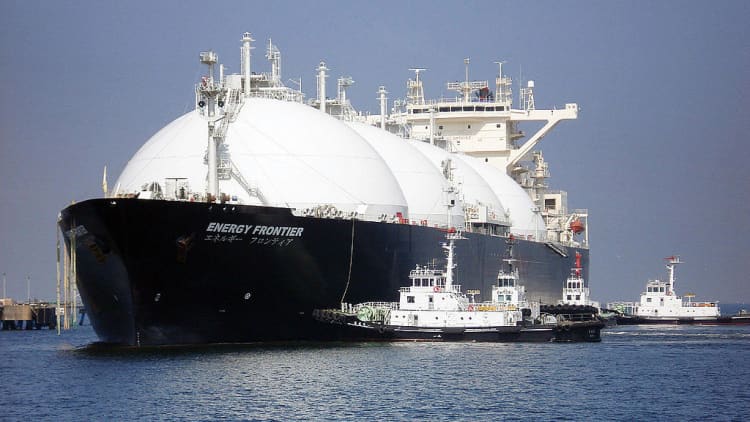
A deal to open the Chinese market to U.S. liquefied natural gas exports could break Qatar's grip on LNG pricing — even if no additional American supplies ever reach the Asian powerhouse.
Last week, the U.S. Commerce Department said it had reached an agreement with Chinese authorities that would see Beijing give state-owned companies the green light to negotiate long-term contracts with U.S. LNG exporters, something it has been hesitant to do.
On Thursday, Commerce Secretary Wilbur Ross suggested the White House would aim to boost LNG exports not just to China, but other nations with whom the United States posts a trade deficit, including Japan, the world's top LNG importer.
[Chinese compannies] don't have to import any U.S. LNG. They just have to have that sledgehammer in their pocket when they go to negotiate their other contractsBenjamin SalisburyFBR Capital Markets senior energy policy analyst
The mere prospect of China buying more of the fuel from the United States stands to upend the global LNG market. It would give the world's biggest buyers — Japan, South Korea and China — leverage in negotiations with top supplier Qatar and other major players. That could in turn shift prices paid for LNG across the world.
In Asian markets, most LNG is sold in long-term contracts, with prices indexed to the price of oil. Those contracts can be renegotiated, and last week's deal between Beijing and Washington could loom large in future negotiations, according to Benjamin Salisbury, senior energy policy analyst at FBR Capital Markets.
Chinese companies "don't have to import any U.S. LNG. They just have to have that sledgehammer in their pocket when they go to negotiate their other contracts," he said.
Much like a technological revolution in U.S. drilling flooded the market with oil and overturned the global oil price order, the threat of American LNG exporters penetrating key markets could rock the LNG market.
This comes as exporters are already grappling with softer-than-anticipated demand, weak LNG prices and a looming boom in export terminal openings — all of which have converged to create a buyer's market.
Cheniere Energy currently operates the only LNG export terminal in the lower 48 states, but four others are under construction in Texas, Louisiana and Maryland. They are slated to come online by 2021, and will push U.S. export capacity to 9.2 billion cubic feet — nearly equal to Japan's total LNG imports in 2015.
"Once you get sufficient critical mass of U.S. LNG capacity in the pipeline, so to speak, then it disrupts the entire global pricing mechanism," Salisbury said. "You've got to view all of these discussions through that window. What does it do to [Chinese buyers'] negotiating power elsewhere?"
U.S. LNG export forecast
Salisbury said he believes Beijing's real goal is to break the Qataris' monopoly over setting Asian LNG prices.
To be sure, Qatar has already seen that monopoly erode, said Massimo Di-Odoardo, head of global gas and LNG research at energy research firm Wood Mackenzie. The Qataris have been forced to renegotiate contracts in light of falling Asian LNG prices and new competition.
The ability to enter long-term contracts with American firms doesn't change the appetite for LNG in China, he said, but it does put pressure on the region's dominant suppliers like Qatar and Australia. If U.S. exporters can lock in at least a few long-term contracts with Chinese buyers, those deals could underwrite investment in new U.S. export capacity, he added.
U.S. LNG is attractive for another reason: The American natural gas market is highly transparent, affording buyers greater clarity on costs than they have in other regions, said Rick Smead, a managing director at advisory firm RBN Energy who has advised Qatar on energy policy in the past.
That transparency will help determine what others can charge and push the opaque, fractured LNG trade toward becoming a mature, functioning market governed by supply and demand, he said.
Whether China turns into the LNG demand center some foresee will depend on a number of issues, said Smead, including the role of coal in its energy mix, natural gas pipeline imports from Russia and the potential adoption of the same drilling methods that are inching the United States toward energy independence.
But the push by the Trump administration is not insignificant, according to Smead. "The more synchronization you can see in the objectives and motivation between industry and the government, the more of a force you are," he said.


